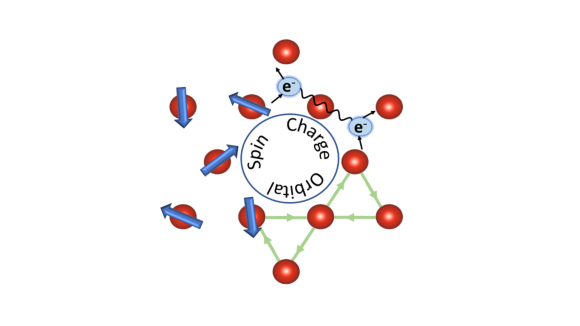About the Guest Editors
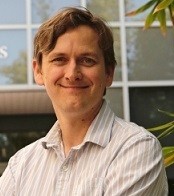 Stephen Wilson received his Ph.D. in Physics from the University of Tennessee in 2007 and then worked as a postdoc in the Materials Science Division at Lawrence Berkeley National Lab through 2009. He served on the faculty of the Physics Department at Boston College from 2010-2014, after which he joined the faculty of the Materials Department at UC Santa Barbara. He is currently serving as Professor and Associate Chair of Materials at UCSB where he also co-directs the NSF’s Quantum Foundry. Stephen’s research program focuses on the synthesis and advanced characterization of novel quantum materials, ranging from unconventional superconductors to quantum magnets.
Stephen Wilson received his Ph.D. in Physics from the University of Tennessee in 2007 and then worked as a postdoc in the Materials Science Division at Lawrence Berkeley National Lab through 2009. He served on the faculty of the Physics Department at Boston College from 2010-2014, after which he joined the faculty of the Materials Department at UC Santa Barbara. He is currently serving as Professor and Associate Chair of Materials at UCSB where he also co-directs the NSF’s Quantum Foundry. Stephen’s research program focuses on the synthesis and advanced characterization of novel quantum materials, ranging from unconventional superconductors to quantum magnets.
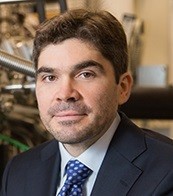 Joseph Checkelsky joined the Department of Physics at MIT as an assistant professor in January 2014. He received his B.S. in Physics in 2004 from Harvey Mudd College and Ph.D. in Physics in 2010 from Princeton University. Before coming to MIT, Professor Checkelsky did postdoctoral work at Japan’s Institute for Physical and Chemical Research (RIKEN) and held the position of lecturer at the University of Tokyo. He was promoted to associate professor in 2019 and in 2020 named a Mitsui Career Development Professor in Contemporary Technology, an appointment he will hold until 2023.
Joseph Checkelsky joined the Department of Physics at MIT as an assistant professor in January 2014. He received his B.S. in Physics in 2004 from Harvey Mudd College and Ph.D. in Physics in 2010 from Princeton University. Before coming to MIT, Professor Checkelsky did postdoctoral work at Japan’s Institute for Physical and Chemical Research (RIKEN) and held the position of lecturer at the University of Tokyo. He was promoted to associate professor in 2019 and in 2020 named a Mitsui Career Development Professor in Contemporary Technology, an appointment he will hold until 2023.
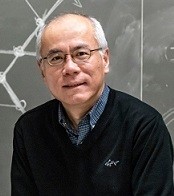 Ziqiang Wang received his Ph.D. in Physics from Columbia University in 1989. He then worked at Rutgers University and Los Alamos National Lab as a postdoc fellow, and as an assistant professor at Boston University. He is currently a professor in the Physics Department at Boston College where he has served on the faculty since 1996. Ziqiang’s research program focuses on correlated and topological electronic states in advanced quantum materials, including unconventional and topological superconductors, quantum magnets, and Chern metals and insulators. He is a fellow of the American Physical Society.
Ziqiang Wang received his Ph.D. in Physics from Columbia University in 1989. He then worked at Rutgers University and Los Alamos National Lab as a postdoc fellow, and as an assistant professor at Boston University. He is currently a professor in the Physics Department at Boston College where he has served on the faculty since 1996. Ziqiang’s research program focuses on correlated and topological electronic states in advanced quantum materials, including unconventional and topological superconductors, quantum magnets, and Chern metals and insulators. He is a fellow of the American Physical Society.
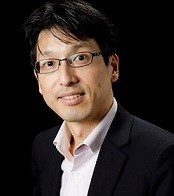 Satoru Nakatsuji received his Ph.D in Physics from the Kyoto University in Japan in 2001 and then worked as a postdoc at National High Magnetic Field Laboratory in Florida till 2003. After he served as a lecturer of the Department of Physics at Kyoto University from 2003 to 2006, he moved to University of Tokyo as an associate professor of the Institute for Solid State Physics and later became a full professor in 2016. Recently, he joined the faculty of Department of Physics of University of Tokyo as a full professor. He is currently serving as Professor at Department of Physics, Project Professor at ISSP, the Director of Trans-Scale Quantum Science Institute, UTokyo. He also serves as Research Professor in the Department of Physics and Astronomy at Johns Hopkins University, Project Manager for Mirai-Project Large Scale, JST, Japan and a Fellow in CIFAR, Canada. Satoru has a broad range of interest in quantum materials covering strange metals, topological materials, spintronics and thermoelectric applications.
Satoru Nakatsuji received his Ph.D in Physics from the Kyoto University in Japan in 2001 and then worked as a postdoc at National High Magnetic Field Laboratory in Florida till 2003. After he served as a lecturer of the Department of Physics at Kyoto University from 2003 to 2006, he moved to University of Tokyo as an associate professor of the Institute for Solid State Physics and later became a full professor in 2016. Recently, he joined the faculty of Department of Physics of University of Tokyo as a full professor. He is currently serving as Professor at Department of Physics, Project Professor at ISSP, the Director of Trans-Scale Quantum Science Institute, UTokyo. He also serves as Research Professor in the Department of Physics and Astronomy at Johns Hopkins University, Project Manager for Mirai-Project Large Scale, JST, Japan and a Fellow in CIFAR, Canada. Satoru has a broad range of interest in quantum materials covering strange metals, topological materials, spintronics and thermoelectric applications.

